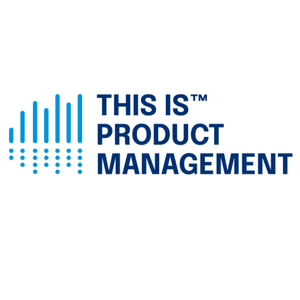
Beyond Academics: The Practical Applications of Machine Learning
05/12/20 • 20 min
In this episode, we talk with Bastiane Huang with OSARO. Bastiane digs into the practical uses of deep learning and machine learning. She explores beyond the academic applications of machine learning and details some real-world scenarios, including the ability to expand the use of robots in less structured environments.
“We use machine learning to allow robots to react to changes in the environment, learn to handle a wide range of different items, and have a range of different tasks. And more importantly, to learn, “Oh! This task [required] minimum human supervision.” So this way, you can really save a lot on human costs and on a lot of the surrounding systems,. These kinds of surrounding systems are usually more than four to five times the robot costs, so it's really significant. And lastly, it also enables robots to be used in new use cases. For example, you don't really see robot arms being used in warehouses right now. Because in a typical warehouse that has millions of different products it’s not feasible to program a robot. You're able to deal with a million different products in a million different ways. So now, because of machine learning, robots can be used in this kind of less structured environment. ”
In this episode, we talk with Bastiane Huang with OSARO. Bastiane digs into the practical uses of deep learning and machine learning. She explores beyond the academic applications of machine learning and details some real-world scenarios, including the ability to expand the use of robots in less structured environments.
“We use machine learning to allow robots to react to changes in the environment, learn to handle a wide range of different items, and have a range of different tasks. And more importantly, to learn, “Oh! This task [required] minimum human supervision.” So this way, you can really save a lot on human costs and on a lot of the surrounding systems,. These kinds of surrounding systems are usually more than four to five times the robot costs, so it's really significant. And lastly, it also enables robots to be used in new use cases. For example, you don't really see robot arms being used in warehouses right now. Because in a typical warehouse that has millions of different products it’s not feasible to program a robot. You're able to deal with a million different products in a million different ways. So now, because of machine learning, robots can be used in this kind of less structured environment. ”
Previous Episode

How Manufacturers Can Decrease Downtimes With Voice-Directed Solutions
In this episode, we talk with Alex Reneman with Mountain Leverage. Alex explores the importance of innovations like voice-directed solutions in the midst of a global pandemic when the supply chain may be disrupted.
“There's a lot of tribal knowledge that sits in some workers that you can put into a system. So we take some of that data and put it into a voice system to voice-enable the process. So, for example, if you have a flex worker who is fully trained at one station and maybe they're only partially trained on another station, they really wouldn't be able to fill in there. But if you add a display with voice that walks them through the process, maybe they’re less efficient than if they were fully trained on the station, but they’re able to get through. So that's something that's pretty impressive normally. But then put the COVID-19 lens over it, and now that individual can be effective while maybe their partner is out with COVID-19 or unavailable based on distancing or different things. That's where we’re finding some of these solutions really interesting at these times.”
Connect with Mountain Leverage on LinkedIn.
Next Episode

How Salesforce’s Einstein Analytics Tool Helps Manufacturers See the Big Picture
In this episode, we sat down with Kyley Darby from Mountain Point and Skye Reymond with Terbium Labs. Kyley and Skye explore how manufacturers can leverage descriptive, predictive, and prescriptive data to optimize business outcomes. They also dig into the ways Salesforce’s Einstein Analytics can help companies better plan for the future.
“‘To move forward and look beyond the “what has happened,” manufacturers need to start pulling data together in a centralized manner — to switch from seeing what has happened to “what could happen, what could we change?” I think having data all over the place is something that holds them back.” - Kyley Darby
“I’ll add to that, Kyley. In the past, a lot of these methods have been really technical and if you don’t have access to the technical talent that’s necessary, you can find yourself following a predictive model that’s incorrect. This can cause the business to lose a lot of money, time, and effort. That technical talent that can utilize predictive and prescriptive analytics has historically been hard to find. But, fortunately, with things like Einstein, Salesforce is making this skill more accessible to everybody. So I think in the future, you’re going to see more of that, where you don’t need an entire data science team, but a good understanding of Einstein, if you’re a Salesforce user, and what those results are going to mean for your business” - Skye Reymond
If you like this episode you’ll love
Episode Comments
Generate a badge
Get a badge for your website that links back to this episode
<a href="https://goodpods.com/podcasts/data-in-depth-320419/beyond-academics-the-practical-applications-of-machine-learning-46898882"> <img src="https://storage.googleapis.com/goodpods-images-bucket/badges/generic-badge-1.svg" alt="listen to beyond academics: the practical applications of machine learning on goodpods" style="width: 225px" /> </a>
Copy




